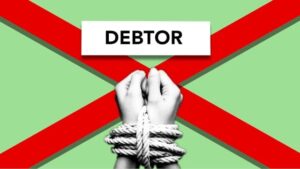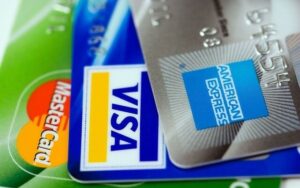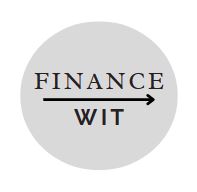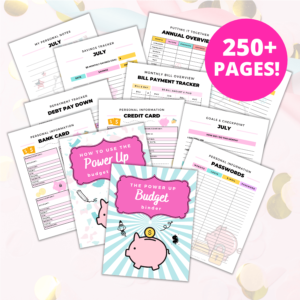
Are you tired of worrying about debt and its impact on your life?
Debt can be a heavy burden, casting a shadow over our financial health and overall well-being.
I’ve seen how debt can wreak havoc on people’s lives, leading to stress, anxiety, and a never-ending cycle of financial instability.
But the good news is, with the right strategies and mindset, you can avoid getting into debt and enjoy a healthier financial life.
In this blog post, I’ll share practical tips and insights to help you avoid falling into debt, based on my personal experiences and research.
So, let’s dive in and explore some practical tips to keep debt at bay.
7 WAYS TO AVOID GETTING INTO DEBT
1. UNDERSTANDING DEBT
Before we can tackle debt, it’s important to understand what it is and how it affects us.
Debt, in its simplest form, is money that you owe to someone else, whether it’s a bank, a credit card company, or a friend, and expected to be paid back with interest.
However, not all debts are created equal.
There are various types of debt, such as:
- Credit card debt: high-interest, revolving credit that can quickly spiral out of control if not managed properly.
- Student loans: often necessary but can become burdensome, especially if taken without a clear plan for repayment.
- Mortgages: typically considered good debt, as they are investments in property, but they can still become a financial strain.
- Personal loans: can be useful for consolidating debt or covering unexpected expenses, but interest rates vary widely.
Each type of debt has its own terms and interest rates, which can make it more or less expensive to carry.
Debt often accumulates because of common causes like unexpected medical bills, poor financial planning, or simply living beyond one’s means.
Understanding these causes is crucial because it allows us to identify potential pitfalls and avoid them.
2. FINANCIAL PLANNING AND BUDGETING

One of the most effective ways to avoid debt is through careful financial planning and budgeting.
I know the word “budget” can sound restrictive but think of it as a tool for empowerment.
It’s about making sure your money is working for you, not against you.
A budget is essentially a plan for your money, outlining how much you earn and how much you spend.
It helps you make sure that you’re living within your means and setting aside money for the future.
Creating an Effective Budget
Creating an effective budget starts with tracking your income and expenses.
This means by listing all your sources of income, writing down everything you earn and everything you spend for at least a month.
I recommend checking out this most effective Power Up Budget Binder. Other tools include a spreadsheet or a budgeting app like Mint or YNAB (You Need a Budget).
Document every source of income and categorize all your expenses.
This might seem tedious at first, but it’s essential for getting a clear picture of your financial situation.
Once you have a clear picture of your finances, categorize your spending into needs (rent, groceries, utilities) and wants (dining out, entertainment, shopping).
This distinction is crucial for prioritizing your spending and cutting back on unnecessary expenses.
Setting Financial Goals
Next, set clear, achievable financial goals. These can be short-term (saving for a vacation), medium-term (paying off a credit card), or long-term (buying a house).
Having goals keeps you motivated and gives you a sense of direction.
Using Budgeting Tools
There are many tools and apps available to help with budgeting, such as Mint, YNAB (You Need A Budget), and EveryDollar. Find one that works for you and stick with it.
I personally love the Power Up Budget Binder because it is very effective, relatable and fits your personality. It makes it easy to track expenses and stay on top of your financial goals.
3. BUILDING AN EMERGENCY FUND
An emergency fund is your financial safety net. It’s a stash of money set aside to cover unexpected expenses like medical bills, car repairs, or sudden loss of income.
Without an emergency fund, you might be forced to rely on credit cards or loans, leading to debt.
Having an emergency fund can be the difference between a minor setback and a major financial crisis.
How Much to Save
Financial experts recommend saving three to six months’ worth of living expenses. This might seem daunting, but you don’t have to do it all at once.
Start small and build up your fund over time. Aim to save $500 or $1,000 initially, then gradually build it up.
Strategies for Building an Emergency Fund
To build an emergency fund, set a monthly savings goal and treat it like a bill that you must pay.
- Automate your savings: set up automatic transfers from your checking account to your savings account so that a portion of your paycheck goes directly into your emergency fund each month.
- And remember, this fund is for emergencies only—avoid dipping into it for non-essential expenses.
- Cut unnecessary expenses: review your budget and identify areas where you can cut back. Redirect these savings into your emergency fund.
- Increase your income: consider side hustles or freelance work to boost your income and speed up your savings.
4. RESPONSIBLE USE OF CREDIT
Credit isn’t inherently bad; it’s how you use it that matters.
Credit can be a useful tool, but it’s also one of the easiest ways to get into debt if not managed properly. Understanding how credit works and using it responsibly is key.
Responsible credit use can help you build a good credit score, which is essential for major financial milestones like buying a house or getting a car loan.
Understanding Credit Scores
Your credit score is a three-digit number that represents your creditworthiness.
It is based on factors like your credit history, including how much debt you have, your repayment history, and the length of your credit history.
A good credit score can save you thousands of dollars in interest over your lifetime, so it’s worth taking seriously.
A high credit score can help you get better interest rates on loans and credit cards, while a low score can make it more difficult and expensive to borrow money.

Tips for Responsible Credit Card Use
- Pay off the balance each month: avoid carrying a balance on your credit cards. If you can’t pay off your balance in full, at least make the minimum payment to avoid late fees and interest charges.
- Avoid high-interest rates: look for credit cards with low-interest rates, especially if you carry a balance from month to month, and avoid cash advances, which often come with higher rates.
- Limit the number of credit cards: having too many credit cards can be tempting, lead to overspending and hard to manage. Stick to one or two cards to keep things simple.
- Use credit only for necessary purchases that you can pay off right away.
Alternatives to Credit Cards
If you find credit cards too tempting, consider using debit cards or cash instead. Debit cards offer the convenience of a card without the risk of accruing debt.
These methods can help you stick to your budget and avoid the temptation of spending money you don’t have.
5. MANAGING STUDENT LOANS
Student loans are a common source of debt, especially for recent graduates. However, there are ways to minimize the amount of student loan debt you take on and manage it effectively once you start repayment.
With careful planning and management, you can minimize the impact of student loans on your financial future.
Minimizing Student Loan Debt
First, explore all your options for scholarships and grants before taking out loans.
- Apply for scholarships and grants: these are essentially free money for college. Spend time researching and applying for as many as you can. These don’t need to be repaid and can significantly reduce your need for loans.
- Consider community colleges and in-state universities: consider attending a community college for the first two years before transferring to a four-year university. These institutions often have lower tuition costs for residents, making them more affordable options.
- Work part-time during college: earning money while studying can help offset some of your expenses and reduce the need for loans. Even a few hours a week can make a difference.
Repayment Strategies
If you already have student loans, look into repayment strategies.
Once you graduate, it’s important to have a plan for repaying your student loans.
Federal student loans offer several repayment plans, including income-driven repayment plans that base your monthly payment on your income and family size.
Consider refinancing or consolidating your loans to get a lower interest rate or a more manageable payment.
6. AVOIDING LIFESTYLE INFLATION

Lifestyle inflation is the tendency to increase your spending as your income rises.
As you start earning more, it’s tempting to upgrade your lifestyle—buy a nicer car, move to a bigger apartment, dine out more often.
It’s easy to fall into this trap, especially when you feel like you deserve to reward yourself for your hard work.
However, it’s important to keep your spending in check to avoid debt.
One way to avoid lifestyle inflation is to focus on needs versus wants. Before making a purchase, ask yourself if it’s something you truly need or just something you want.
Prioritizing your needs can help you avoid unnecessary expenses.
Tips for Living Below Your Means
This means spending less than you earn and saving the difference.
It can be challenging, especially when you see others living more lavishly, but it’s worth it for your long-term financial health.
- Focus on needs vs. wants: always prioritize your needs over wants. This doesn’t mean depriving yourself, but rather being mindful of your spending.
- Prioritize saving and investing: make saving and investing a priority, even as your income increases. Pay yourself first by setting aside a portion of your income for savings and investments before spending on non-essentials. This helps ensure you’re building wealth over time.
- Practice mindful spending: before making a purchase, ask yourself if it’s something you truly need or if it’s just an impulse buy. Be intentional with your money. Instead of making impulse purchases, take time to think about whether something is worth the cost. This can help you make better financial decisions and avoid debt.
7. STRATEGIES FOR SMART SHOPPING
Smart shopping habits can also help you avoid debt. By being conscious of how and where you spend your money, you can save more and reduce the likelihood of overspending. Here are some strategies I use:
- Make a shopping list: plan your purchases ahead of time and stick to your list. This helps avoid impulse buys, ensures you only get what you need and help stick to your budget.
- Compare prices and use coupons: take the time to compare prices online and in stores. Take advantage of sales, discounts, and coupons. Use coupons and cashback apps like Rakuten to save money. Many stores offer loyalty programs that provide discounts or cash back, so take advantage of these as well.
- Avoid impulse buying: if you see something you want, give yourself a cooling-off period before buying it. Often, you’ll find that the urge to buy passes after a day or two. This can give you time to decide if you really need or want the item. If you still want it after waiting, then it’s likely a worthwhile purchase.
Benefits of buying in Bulk and during Sales

Buying in bulk can save you money in the long run, especially for non-perishable items. Look for sales and stock up on items you use regularly.
Just be sure to compare unit prices to ensure you’re getting the best deal.
Also be careful not to buy things you don’t need simply because they’re on sale.
8. SEEKING FINANCIAL ADVICE
Sometimes, managing your finances can feel overwhelming, and that’s okay. Seeking professional financial advice can provide valuable insights and help you make informed decisions.
A financial advisor can provide personalized guidance and help you create a plan to avoid debt and achieve your financial goals.
When and Why to Seek Professional Financial Advice
If you’re struggling to manage debt, planning for major life changes (like buying a house or starting a family), or simply want to make sure you’re on the right track, a financial advisor can provide valuable insights.
They can help with everything from debt management and retirement planning to investing and tax strategies.
Types of Financial Advisors
- Fee-Only Advisors: These advisors charge a flat fee or hourly rate and don’t earn commissions on the products they recommend. This can help ensure their advice is unbiased.
- Financial Planners: These professionals can help you create a comprehensive financial plan that covers all aspects of your financial life. Financial planners may charge a percentage of your assets under management.
How to Choose the Right Financial Advisor
When choosing an advisor, look for someone with a good reputation and the right credentials, such as Certified Financial Planner (CFP) or Chartered Financial Analyst (CFA) designations.
Verify their relevant experience, who you feel comfortable talking to about your financial goals and to act in your best interest.
Ask for recommendations from friends or family and do your own research to find the right fit for you.
CONCLUSION ON WAYS TO AVOID GETTING INTO DEBT
Avoiding debt isn’t just about cutting costs and saving money—it’s about creating a healthy financial lifestyle that empowers you to achieve your goals and live with peace of mind.
By understanding the nature of debt, budgeting effectively, building an emergency fund, using credit responsibly, managing student loans, avoiding lifestyle inflation, adopting smart shopping habits, and seeking professional advice when needed, you can take control of your financial future.
Remember, the journey to financial health is a marathon, not a sprint. It takes time, effort, and discipline, but the rewards are well worth it.
Be patient with yourself and stay committed to your goals. You’ll enjoy greater financial security, peace of mind, and the freedom to live life on your own terms.
I’d love to hear your thoughts and experiences on managing debt. Do you have any tips or strategies that have worked for you? Share them in the comments below!
I hope you found this article helpful and insightful. Kindly share and follow me on Pinterest and LinkedIn for the latest posts.
 ABOUT CHRISTY MICHAEL
ABOUT CHRISTY MICHAEL
I am passionate about finding creative ways to pay off debts, make more money, and save more money; and helping people achieve their financial goals and ultimately, financial freedom. My journey of overcoming consumer debts and achieving financial independence inspired me to start FinanceWit.org (with no knowledge or experience with blogs). FinanceWit is a personal finance and money matters blog, where I share a treasure trove of tips, tricks, and innovative strategies to fast-track your journey to debt freedom. Want to dive deeper into my story? Read more about me here.

